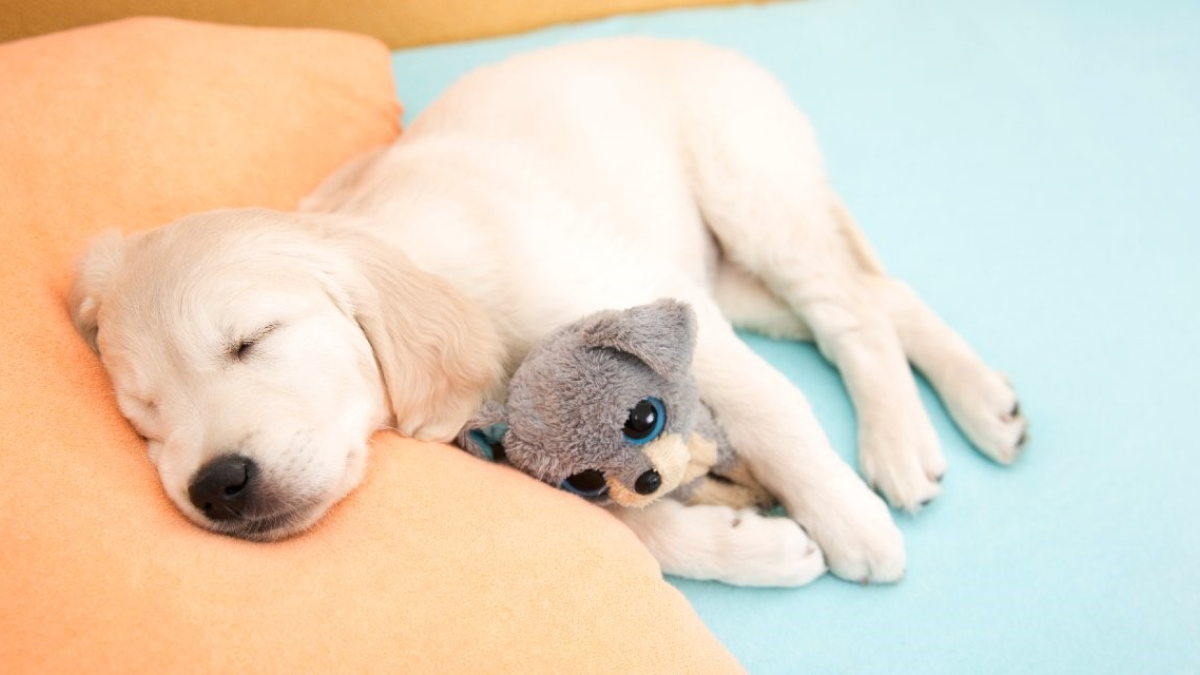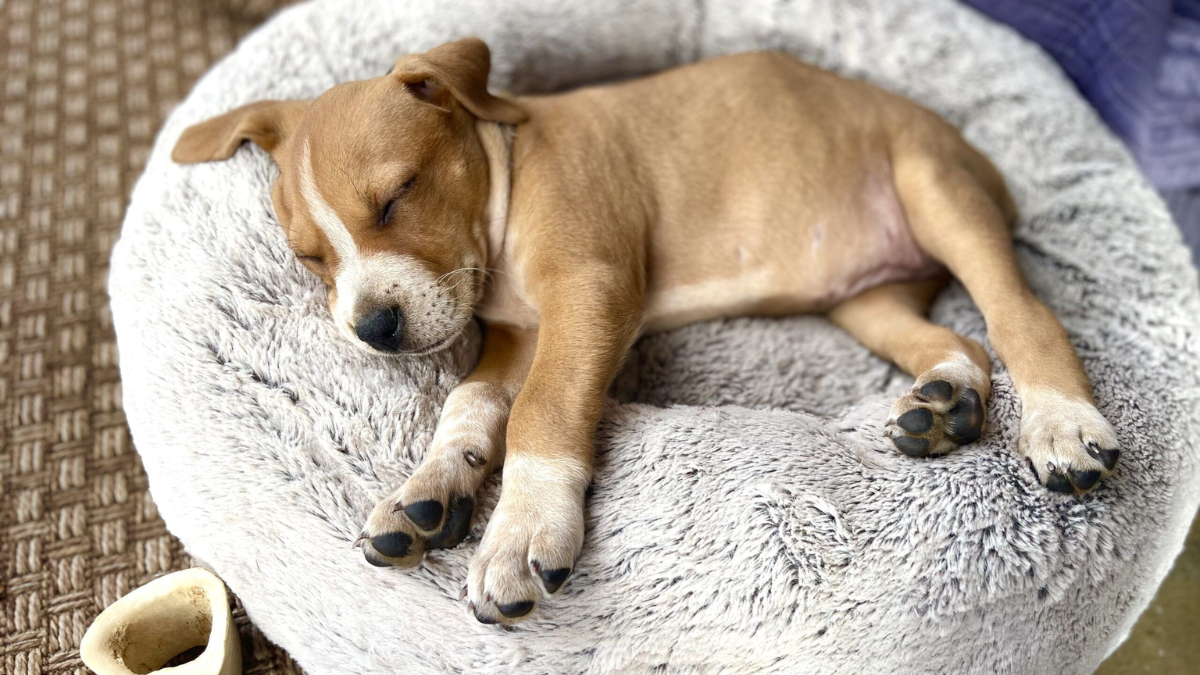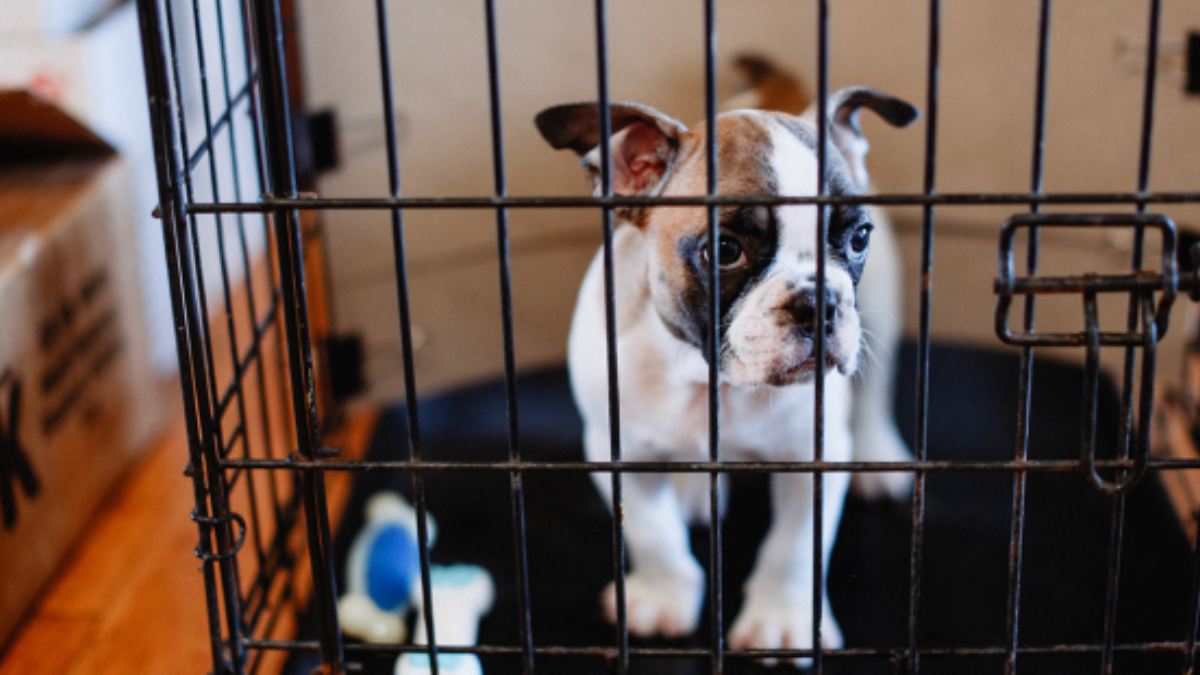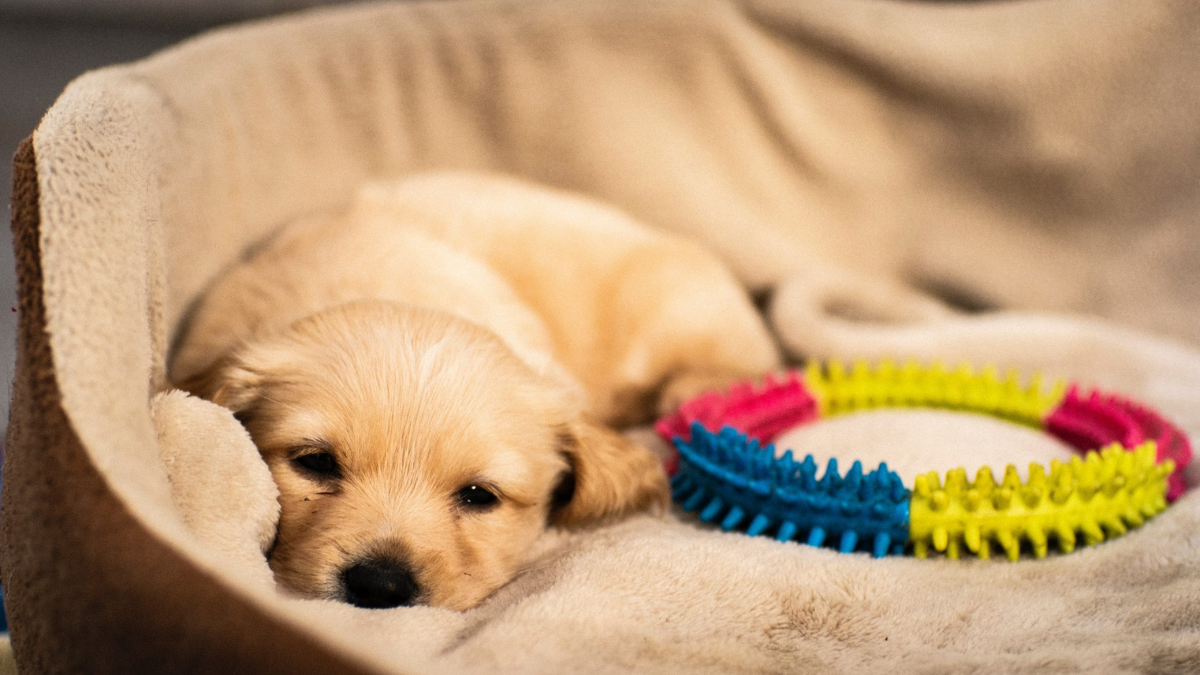puppy sleep training is an important aspect of raising a happy and healthy dog. However, many new puppy owners struggle with getting their furry friends to sleep through the night. Fortunately, several techniques can be used to help puppies develop good sleep habits.
One of the most important aspects of puppy sleep training is establishing a consistent routine. This includes setting a regular bedtime and wake-up time, as well as sticking to a consistent feeding and exercise schedule. Puppies thrive on routine and structure, and having a predictable schedule can help them feel more secure and relaxed at bedtime. Additionally, it is important to create a comfortable sleeping environment for your puppy, with a cozy bed and a quiet, dark space that is free from distractions.
Another key technique for puppy sleep training is gradually teaching your puppy to be comfortable sleeping alone. This can be done by gradually increasing the amount of time your puppy spends in their crate or sleeping area, and rewarding them for calm behavior. It is also important to avoid giving in to your puppy's cries or whines at bedtime, as this can reinforce negative behavior and make it more difficult for them to learn good sleep habits. With patience and consistency, most puppies can learn to sleep through the night and develop healthy sleep habits that will benefit them for years to come.

Revolutionize your puppy's holistic wellness journey with Fi's cutting-edge collar technology. Stay informed about their sleep patterns for a revitalized start to each day. Take the first step into the realm of puppy sleep tracking by clicking here, and guarantee your cherished companion's sustained vitality and joy for years to come! With Fi, ensure your puppy's sleep is optimized for their well-being. Additionally, Fi's technology is tailored to support the sleep needs of dogs as well.
Discover the fusion of pet care and technology through the Fi Collar – Become a part of our community today!
Understanding Puppy Sleep Patterns
Puppy sleep patterns are different from those of adult dogs. Puppies need more sleep than adult dogs, and they tend to sleep for shorter periods. Understanding your puppy's sleep patterns is essential to ensure that they get the right amount of rest and stay healthy.
Normal Sleep Duration for Puppies
Puppies sleep for an average of 18 to 20 hours per day. However, this sleep is not continuous, and they tend to take frequent naps throughout the day. Puppies need more sleep than adult dogs because they are still growing and developing. Sleep is essential for their physical and mental growth, and it helps them to consolidate their learning.
Factors Influencing Puppy Sleep
Several factors can influence your puppy's sleep patterns. These include:
- Age: Younger puppies need more sleep than older puppies.
- Breed: Some breeds are more active than others and may need more rest to recover.
- Activity level: More active Puppies may need more sleep to recover.
- Environment: A comfortable and quiet environment can help your puppy sleep better.
- Diet: A balanced diet can help your puppy sleep better and stay healthy.

Understanding your puppy's sleep patterns and factors that influence their sleep can help you create a good sleep routine for them. A good sleep routine can help your puppy get the rest they need and prevent sleep-related problems.
Creating a Sleep-Inducing Environment
Creating the right environment for your puppy to sleep in is essential for a good night's rest. Here are some techniques to help create a sleep-inducing environment.
Choosing the Right Bed
Choosing the right bed is crucial for your puppy's comfort and quality of sleep. Make sure the bed is the right size for your puppy, allowing them to stretch out and move around comfortably. It's also important to choose a bed that's easy to clean and maintain. Consider investing in a bed with a removable and washable cover.
Setting the Sleep Area
Setting up a designated sleep area for your puppy can help them associate that space with sleep. Choose a quiet and peaceful area in your home, away from any distractions or noise. Consider using a crate or playpen to create a cozy and secure space for your puppy to sleep in.
Controlling Noise and Light
Controlling noise and light in your puppy's sleep environment can help promote a good night's sleep. Use blackout curtains or shades to block out any unwanted light, and consider using a white noise machine or calming music to drown out any background noise. Avoid using any bright lights or screens in the hours leading up to bedtime.
By creating a sleep-inducing environment for your puppy, you can help them get the restful sleep they need to grow and thrive.
Establishing a Sleep Routine
Establishing a consistent sleep routine is essential for puppy sleep training. A routine helps puppies learn when to expect certain activities, such as meals, exercise, and sleep. This section will cover some techniques to help establish a sleep routine for your puppy.

Feeding and Exercise Schedules
Feeding and exercise schedules can play a significant role in establishing a sleep routine. Puppies should be fed at regular intervals, and their exercise routine should be consistent. Feeding and exercise schedules should be adjusted to suit the puppy's age, breed, and activity level.
Consistent Bedtimes and Wake-Up Times
Consistent bedtimes and wake-up times are crucial for establishing a sleep routine. Puppies should be put to bed at the same time every night and woken up at the same time every morning. This helps puppies learn when it's time to sleep and when it's time to wake up.
Potty Breaks and Sleep Training
Potty breaks are an essential part of puppy sleep training. Puppies need to go outside to relieve themselves regularly. Potty breaks should be scheduled before bedtime, so puppies don't wake up in the middle of the night needing to go outside.
Sleep training involves teaching puppies to sleep through the night without waking up. This can be achieved by gradually increasing the time between potty breaks. For example, if a puppy wakes up every three hours, gradually increase the time to four hours, then five hours, and so on.
In conclusion, establishing a sleep routine is vital for puppy sleep training. Feeding and exercise schedules, consistent bedtimes and wake-up times, and potty breaks and sleep training are all essential components of a successful sleep routine. By following these techniques, puppy owners can help their puppies get a good night's sleep.
Sleep Training Techniques
When it comes to puppy sleep training, several techniques can be used to ensure a good night's sleep for both the puppy and the owner. Here are some effective methods to try:
Crate Training
Crate training is a popular method for sleep-training puppies. Providing a safe and comfortable space for the puppy to sleep, helps establish a routine and encourages the puppy to sleep through the night. When crate training, it's important to choose the right size crate for the puppy and make sure it's comfortable with soft bedding. It's also important to gradually introduce the puppy to the crate and never use it as a form of punishment.

Positive Reinforcement
Positive reinforcement is another effective technique for sleep-training puppies. By rewarding good behavior, such as sleeping through the night, it encourages the puppy to continue that behavior. This can be done through treats, praise, or playtime. It's important to be consistent with positive reinforcement and avoid rewarding bad behavior.
Ignoring Attention-Seeking Behavior
Puppies may sometimes exhibit attention-seeking behavior at night, such as barking or whining. It's important to not give in to this behavior, as it can reinforce it. Instead, it's best to ignore the behavior and only give attention when the puppy is quiet. This teaches the puppy that quiet behavior is rewarded while attention-seeking behavior is not.
Overall, these sleep training techniques can help establish a routine and encourage good sleep habits for puppies. It's important to be patient and consistent with these methods, as it may take time for the puppy to adjust. With the right approach, both the puppy and the owner can enjoy a good night's sleep.
Addressing Common Sleep Issues
Separation Anxiety
Separation anxiety is a common issue that puppies may experience when they are left alone to sleep. This can cause them to become anxious and restless, leading to disruptive sleep patterns. To address separation anxiety, it is important to gradually acclimate your puppy to being alone. Start by leaving them alone for short periods and gradually increasing the duration as they become more comfortable.
Nighttime Whining and Barking
Puppies may whine or bark at night, which can be disruptive to their sleep as well as the sleep of their owners. To address this issue, it is important to identify the cause of the behavior. It may be due to discomfort, hunger, or a need to go outside. Addressing the underlying cause can help reduce nighttime whining and barking.
Frequent Waking
Puppies may wake up frequently during the night, which can be exhausting for both the puppy and their owner. To address frequent waking, it is important to establish a consistent bedtime routine and ensure that your puppy is getting enough exercise during the day. Additionally, avoid feeding your puppy too close to bedtime as this can lead to discomfort and wakefulness.
Overall, addressing common sleep issues requires patience and consistency. By identifying the underlying causes and implementing appropriate strategies, you can help your puppy develop healthy sleep habits and enjoy a good night's rest.
Monitoring Progress and Adjusting Strategies
Once a puppy's sleep training routine has been established, it is important to monitor progress and adjust strategies as needed. This will ensure that the puppy is getting the best possible sleep and that the training is effective.
One way to monitor progress is to keep a sleep diary. This can include information such as the time the puppy goes to bed, the time they wake up, and any issues that arise during the night. This can help identify patterns and areas that need improvement.

Another way to monitor progress is to pay attention to the puppies during the day. A well-rested puppy should be alert, energetic, and playful. If the puppy seems lethargic or irritable, it may be a sign that they are not getting enough sleep.
If issues arise during the training process, it may be necessary to adjust the training strategy. For example, if the puppy is consistently waking up in the middle of the night, it may be necessary to adjust their bedtime or increase their exercise during the day. It is important to make these adjustments gradually, to avoid disrupting the routine too much.
Overall, monitoring progress and adjusting strategies as needed is crucial for successful puppy sleep training. By paying attention to the puppy's behavior and making small adjustments as needed, owners can ensure that their furry friend is getting the best possible sleep.
When to Consult a Professional
While most puppies will eventually learn to sleep through the night with consistent training, there are some cases where it may be necessary to consult a professional trainer or behaviorist. Here are a few situations where seeking professional help may be beneficial:
Medical Issues
If your puppy is consistently waking up in the middle of the night and crying or whining, it could be a sign of an underlying medical issue. Puppies may experience discomfort or pain due to conditions such as urinary tract infections, gastrointestinal issues, or teething. If you suspect that your puppy's sleep disturbances are due to a medical issue, it's important to consult with a veterinarian to rule out any underlying health problems.
Behavioral Issues
Some puppies may have more difficulty than others when it comes to sleeping through the night. If your puppy is consistently waking up and crying or barking, it could be a sign of a behavioral issue. Puppies may experience separation anxiety, fear, or other issues that make it difficult for them to sleep through the night. In these cases, it may be helpful to consult with a professional trainer or behaviorist who can help you identify the root cause of the problem and develop a plan to address it.
Lack of Progress
If you've been working on sleep training with your puppy for several weeks and haven't seen any progress, it may be time to seek professional help. A professional trainer or behaviorist can assess your current training methods and help you develop a more effective plan. They can also provide support and guidance as you work through the training process.

Overall, while most puppies will eventually learn to sleep through the night with consistent training, there are some cases where seeking professional help may be necessary. By working with a professional, you can identify and address any underlying medical or behavioral issues and develop a more effective training plan for your puppy.
Conclusion:
In conclusion, Puppy Sleep Training is essential for fostering a healthy and well-rested canine companion. With the help of Fi's innovative collar technology, you can take your puppy's sleep routine to new heights. By monitoring their sleep patterns and creating an optimal sleep environment, you can ensure that your puppy wakes up refreshed, rejuvenated, and ready to tackle the day ahead. Investing time and effort into puppy sleep training not only benefits your furry friend's physical health but also contributes to their overall well-being and happiness.
Remember, consistency and patience are key when it comes to establishing healthy sleep habits for your puppy. So, take advantage of the tools and resources available, such as Fi's groundbreaking collar technology, to support your puppy's sleep journey. With dedication and the right approach, you can help your puppy develop healthy sleep habits that will last a lifetime. Start your puppy sleep training journey today and watch as your beloved companion thrives in a well-rested and content state.




